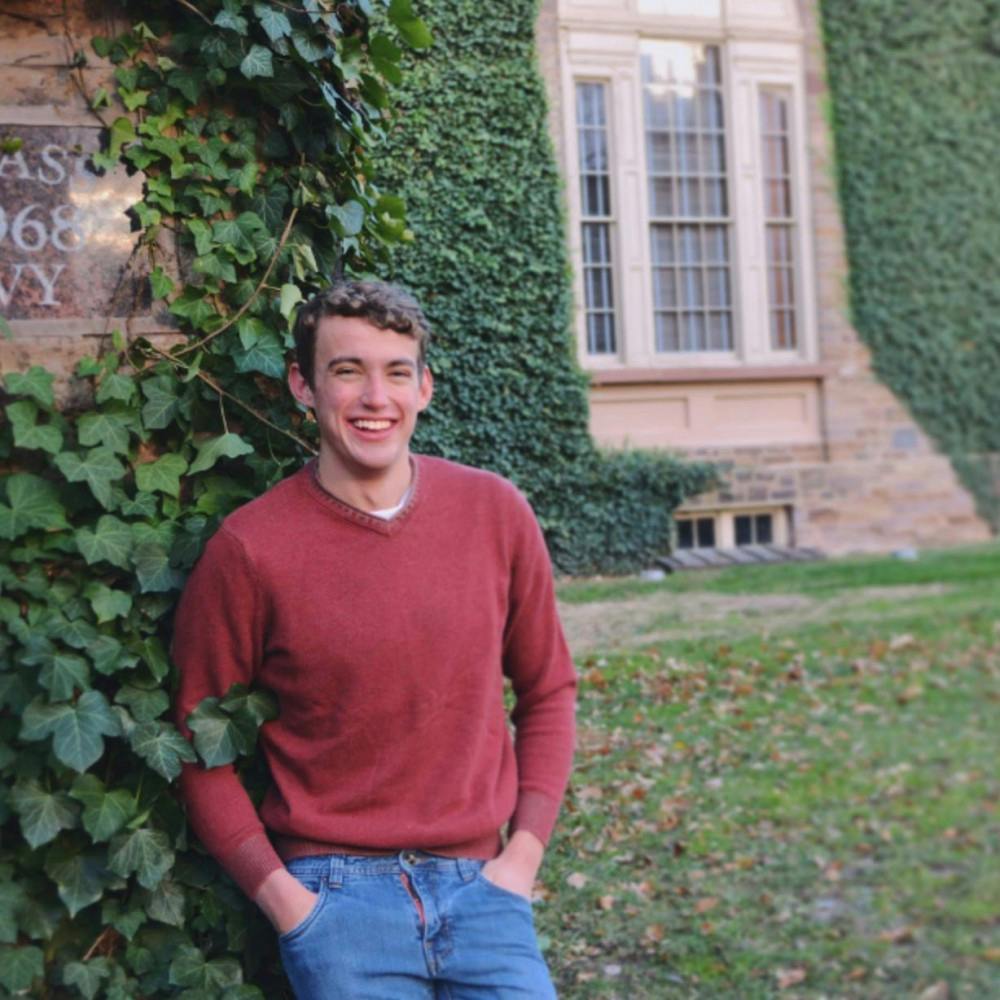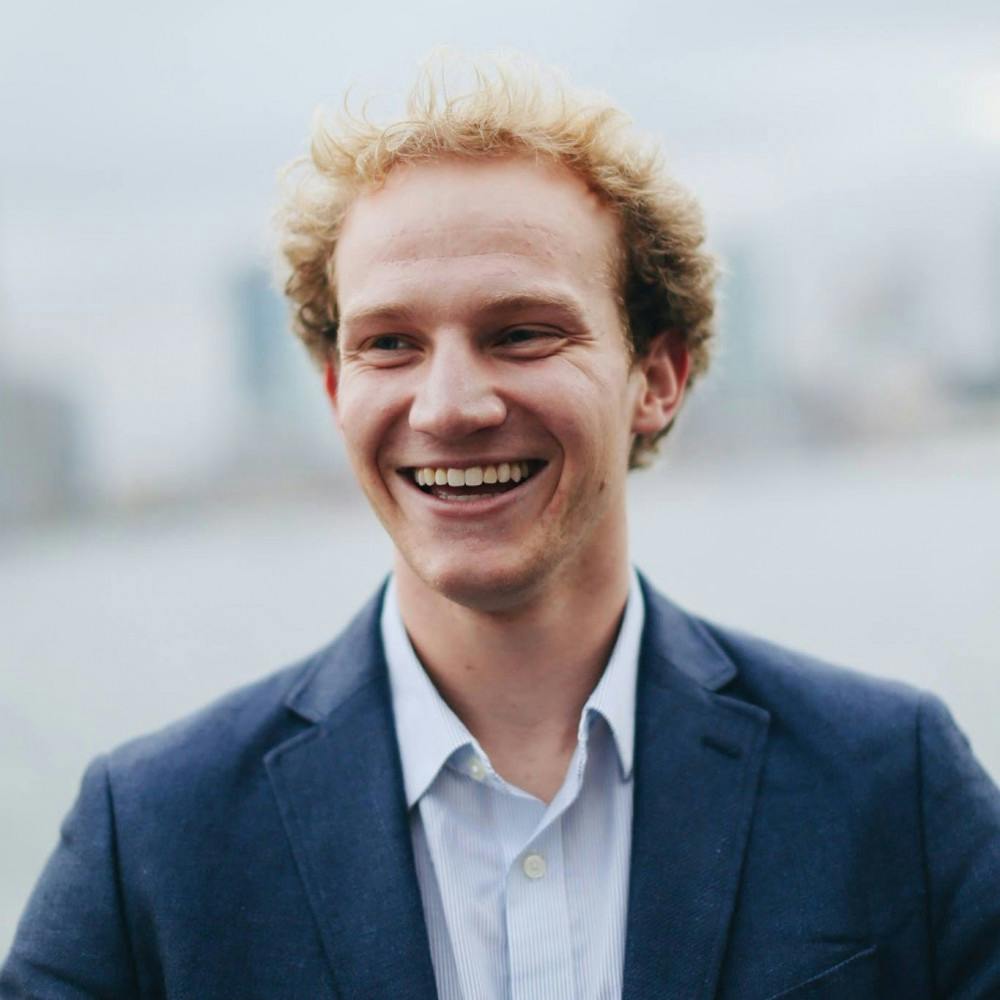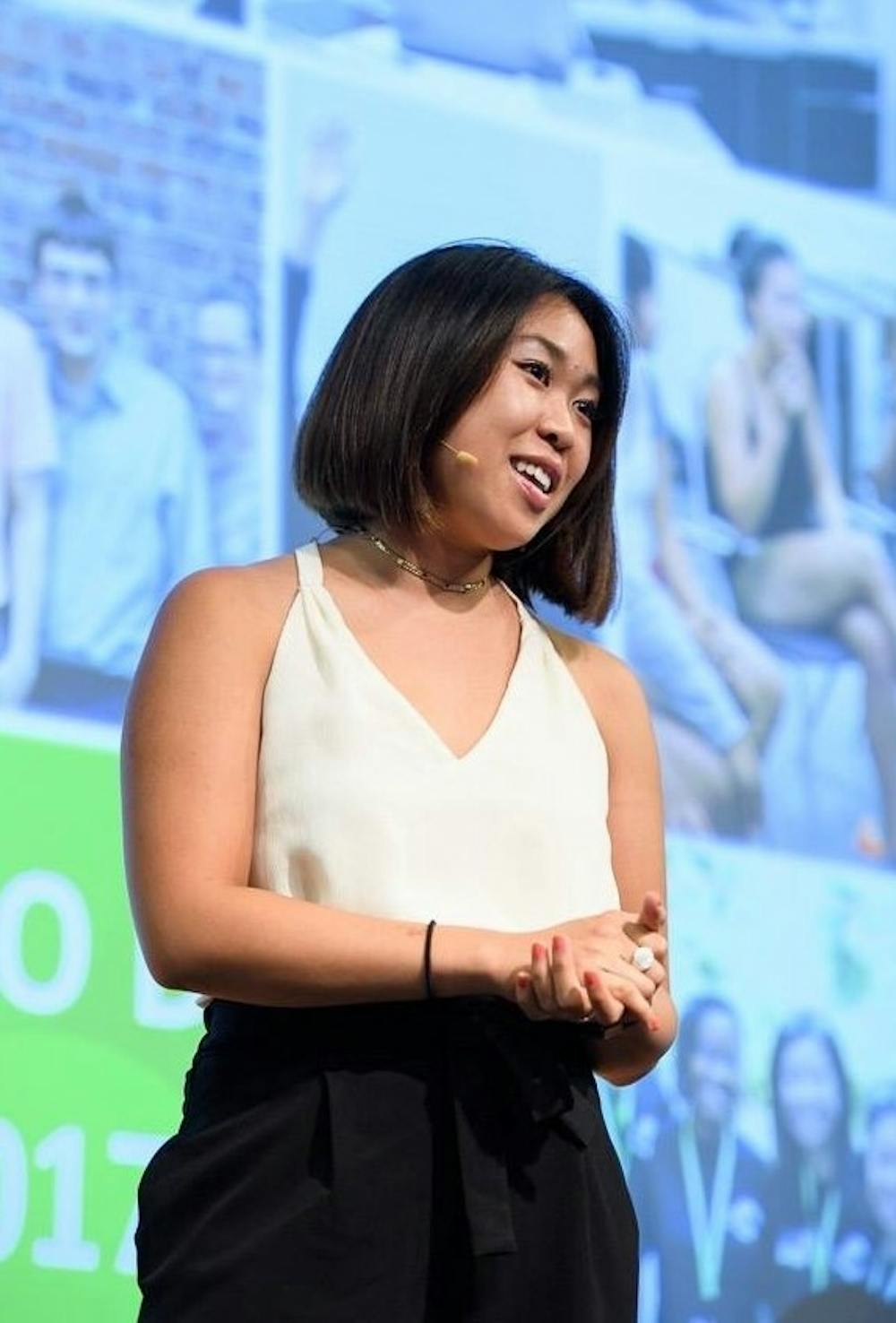Elections for Undergraduate Student Government begin today, and all three USG presidential candidates encourage University students to vote.

Matt Miller '19
As a first-year student, Matt Miller '19 did not envision himself running for USG President.
“I got involved in USG on a whim a little over a year ago when I saw that there was an open spot for social media,” explained Miller. “I had a lot of experience in that area, and I had some extra time, so I thought, 'Why not do something for the Princeton community?'”
Miller, a former lightweight rower, says that he became more and more involved in USG as he realized that important student perspectives — for example, those of student-athletes — were missing from the organization.

“In a communications role, I got to see everything from the inside,” added Miller, “and I wanted a position where I could do more.”
According to Miller’s website, his solutions for bridging the student-athlete and non-athlete divide includes summer study abroad financial aid for athletes, shifting event timing to avoid conflicts with 4:30 p.m. practice times, increased late meal times, and healthier late meal options.
For Miller, the presidency would allow him to do more than he currently can because it would enable him to work from a position of increased visibility.
“What the USG presidency really does is to give the president a microphone, a platform to be a voice for the student body,” Miller said.

In an interview with the 'Prince,' Miller acknowledged that long-term reforms, such as changes to Princeton Counseling and Psychological Services, would be difficult. His biggest tangible priority is improvement to Lawnparties headliners, and his cultural goal is to be a voice for students.
Miller spent a good portion of the USG debate discussing his plan for Lawnparties.
“What the USG presidency needs is someone who can talk to the administration, fight for student perspectives and, if necessary, go public,” Miller noted.
“I want to make myself public and available to the administration,” Miller said.
Interviewed at the end of a long week of campaigning, Miller seemed enthusiastic about the process.
“I love meeting new people, going door-to-door,” he said. “It’s great to hear support from so many segments of my life and the Princeton community.”

Ryan Ozminkowski '19
When asked to summarize his campaign in a single phrase, Ryan Ozminkowski '19 emphasized "ideals over ideas."
“Everyone proposes things that are basically all good. No one’s going to say, 'I want worse mental health reform,' or 'worse athlete/non-athlete relationships,'” he said. “These have been the same ideas for 20 plus years on the platforms, no one disagrees with them, so you have to vote for the ideal. My ideals are just fun, they’re love, culture, community.”
“The focus is to just, in a very genuine way, make people care and just share my love of the school with other people,” he added.
Ozminkowski, a varsity track athlete, has started three organizations on campus: Princeton Tonight, the Princeton Tonight Festival, and an entrepreneurial club. His time at the University has been shaped by his desire to create or fix things that are not working, he said.
“I’ve worked with USG so closely to start these groups (that’s the Student Group Recognition committee), to get funding through [the Office of the Dean of Undergraduate Students], [and] to get about $100,000 through them to make these clubs work, through projects and conference funding,” Ozminkowski added. “I’m very close with everyone in the Dean’s office from pulling off these giant events.”
Rather than take sole advantage of school-sponsored funding opportunities, Ozminkowski hopes to share his knowledge of these resources with the student body.
“Let’s tell people about these things," Ozminkowski said. "It shouldn’t be something that’s elite and only if you know the ‘inside scoop.'"
Ozminkowski’s campaign has drawn controversy over the past two weeks for what he terms "Domain-gate" — his campaign’s purchasing of domain names which referenced the other candidates but redirected to a blank page — and for potential links between his campaign and Princeton Tonight.
“We’re 20 years old, you know, let’s just enjoy our time. That I can introduce that [idea], I feel like, is an obligation, because if I didn’t, no one would,” Ozminkowski said.
Describing himself as a producer who, rather than write or direct, brings together people to complete a project, Ozminkowski explained, “In the movie of Princeton, bringing together the best people that represent different groups, that represent the different ideals, and being able to turn it into a functioning ‘movie’ of the school is a good thing.”

Rachel Yee ’19
Rachel Yee '19 states that her campaign motto — “See a need, fill a need” — is inspired by a line in the movie Robots. She watched the movie in the seventh grade, but continues to remember those words.
“I have [the saying] in big, bold letters in my room,” she said. “It’s a reminder that whatever I’m doing, I need to see what needs have to be filled around me, and step up to do that without being asked.”
For Yee, the campaign process has been both rewarding and frustrating.
“Going door-to-door has given me so much more inspiration,” Yee said. “Without even knowing me, [students] have given me advice and encouragement. It truly reminds me why I have been running on the first place.”
“It’s been a very aggressive campaign cycle,” she said.
Yee agrees with Ozminkowski's sentiment “that USG is not seen as a fun club and that’s something we need to change perception-wise,” but she emphasizes working to “differentiate between wants and needs.”
For Yee, participating in USG is also a way to practice empathy.
“In order to be a good representative, you have to go and talk to people and see what their concerns are,” she said. “I think for me it’s also a really good exercise in getting out of your own perspective, a good exercise in being less self-centered, because you have to be focused on others.”
Yee stated that, if nothing else, she wants her administration to achieve reform for Counseling and Psychological Services.
“That is one tangible thing, and yes, it might not be one hundred percent successful, and that’s why you have to try it,” Yee said.
“I don’t think that in the near future Princeton will ever get any easier, but what we can do is provide resources,” Yee added.







